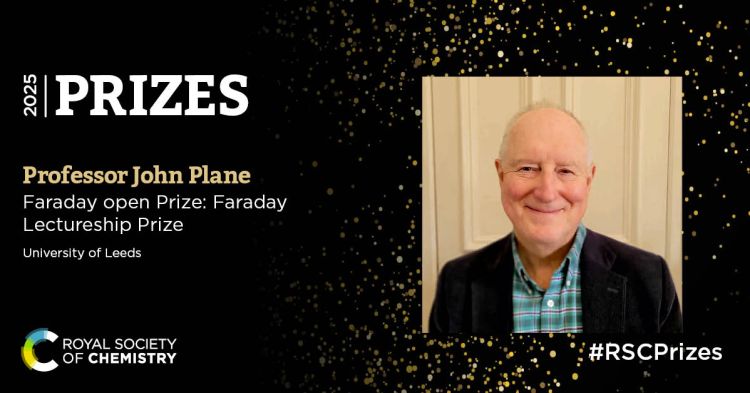Leeds professor wins prestigious chemistry prize for cosmic dust research

A University of Leeds scientist has been honoured with a major award for his groundbreaking research into the chemistry of planetary atmospheres and space.
Professor John Plane FRS has been awarded the Royal Society of Chemistry’s Faraday Lectureship Prize, recognising his exceptional contributions to physical chemistry through both experimental and theoretical work.
The award, which includes a £3,000 prize and a medal, celebrates his pioneering research into how cosmic dust interacts with planetary atmospheres.
Professor Plane’s work focuses on the chemical processes that occur when tiny particles from space enter a planet’s atmosphere. Much of his research explores how this dust forms around ageing stars, such as red giants, and how it can eventually lead to the creation of new planets and moons. Some of this dust survives in comets, which release the particles when warmed by the Sun.
When Earth crosses a comet’s path, the dust enters the atmosphere at extremely high speeds, vaporising and releasing metals such as sodium, iron and magnesium. These metals form thin layers high above Earth that scientists study to understand atmospheric behaviour, including the effects of climate change and solar activity.
Professor Plane and his group use a range of techniques, including laboratory experiments, lidar lasers, satellite data, and computer models, to study these phenomena on Earth, Mars, and Venus.
His research has also shed light on the formation of noctilucent clouds – rare, high-altitude clouds that have become more common and brighter in recent decades, in a trend linked to climate change.
Speaking about his latest honour, Professor Plane said: “I was naturally very surprised and deeply honoured to receive the Faraday Prize. The first paper I published back in 1981 was in the Faraday Transactions, later incorporated into Physical Chemistry Chemical Physics, so there is a sense of continuity with the Faraday name!”
Dr Helen Pain, Chief Executive of the Royal Society of Chemistry, said: “The chemical sciences cover a rich and diverse collection of disciplines, from fundamental understanding of materials and the living world, to applications in medicine, sustainability, technology and more. By working together across borders and disciplines, chemists are finding solutions to some of the world’s most pressing challenges.
“Our prize winners come from a vast array of backgrounds, all contributing in different ways to our knowledge base, and bringing fresh ideas and innovations.
“Their passion, dedication, and brilliance are an inspiration. I extend my warmest congratulations to them all.”
This award for Professor John Plane follows his recognition by the American Geophysical Union, the world’s largest Earth and space science association. The AGU named Professor Plane the recipient of the 2023 Space Physics and Aeronomy Marcel Nicolet Lecture, honouring his significant contributions to the field of aeronomy.




